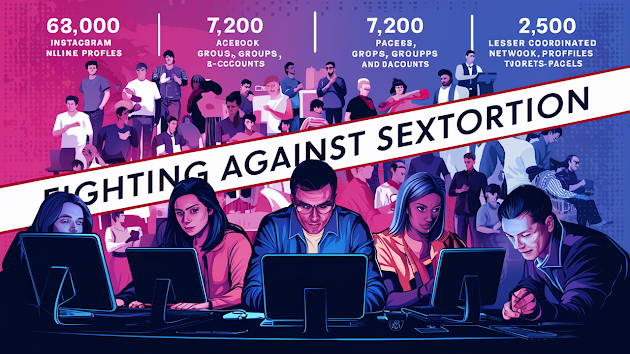The "Yahoo Boys," a group of Nigerian internet scammers, are well-known for their elaborate schemes, which include posing as needy individuals or promising exceptional returns on investments from Nigerian princes.
A less coordinated network of about 2,500 that was connected to a group of about 20 people was also taken down by the firm.
In sexual extortion, often known as "sextortion," victims are threatened with the publication of incriminating images, which may be real or staged if they do not pay to end the practice.
The bulk of the con artists' endeavors proved fruitless; while they primarily targeted adults, Meta also discovered attempts made against youngsters, which she reported to the U.S. National Center for Missing and Exploited Children.
Representatives for Meta stated that they had previously interfered with these networks, but they were revealing the current situation to "raise awareness."
In recent years, the social media behemoth has found itself under increased pressure from governments and lawmakers, particularly in the US, where Meta is headquartered, to address allegations that its executives have disregarded data indicating that its services are harmful to children.
During a hearing held earlier this year, a U.S. lawmaker charged Mark Zuckerberg, the CEO of Meta, and other prominent figures in the social media industry with having "blood on their hands" for their failure to safeguard children from the growing risks of sexual assault on their platforms.
To serve as a reminder of these risks, the U.S. Surgeon General has also urged to add a warning label to social networking apps.
Nigerian con artists gained notoriety as "419 scams" in response to the ineffectual component of the country's penal law that addressed fraud.
Online fraud has become more prevalent as more than 200 million people in the nation experience increasing economic challenges. The perpetrators of these scams typically operate out of wealthy neighborhoods, shanty suburbs, or university dorms.
According to Meta, some identities offered advice on pulling off scams.
"Their efforts included offering to sell scripts and guides to use when scamming people, and sharing links to collections of photos to use when populating fake accounts," according to the report.
Online fraud has become more prevalent as more than 200 million people in the nation experience increasing economic challenges. The perpetrators of these scams typically operate out of wealthy neighborhoods, shanty suburbs, or university dorms.
According to Meta, some identities offered advice on pulling off scams.
"Their efforts included offering to sell scripts and guides to use when scamming people, and sharing links to collections of photos to use when populating fake accounts," according to the report.



